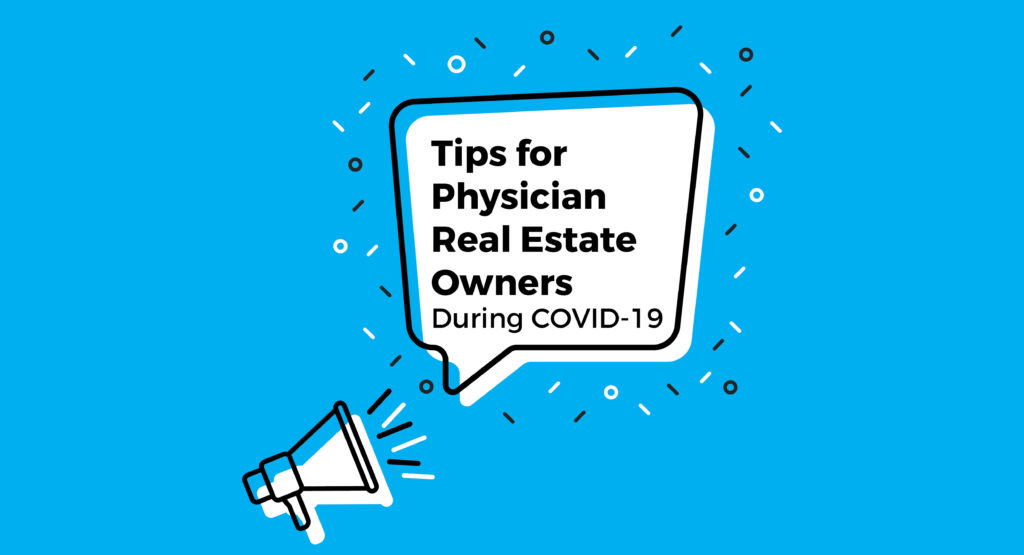
As tenant revenue dries up, paying rent may become an issue. Here are some options.
BY MARC FLYNN PUBLISHED IN HEALTHCARE BUSINESS APRIL 7, 2020 7:30 AM
In the midst of the worldwide epidemic caused by COVID-19, many medical real estate owners have been struck with requests from tenants they no longer control to defer rent for April. This can be alarming for physician real estate owners as it’s uncertain when elective procedures and non-essential medical services will resume. Will a tenant ask to defer rent in May also? June? These landlords aren’t always seasoned investors; they’re physicians who are feeling pressure from large, sophisticated business entities – all the while, they have mortgages and overhead to cover.
As a real estate owner who no longer has control of your tenant, it’s important to understand that you have only a few opportunities to exit your real estate investment. In order to sell at a premium, you need desirable lease terms. These include market rents, a long term (10+ years) NNN (“triple-net”) lease, attractive rental escalations, and other more nuanced details that can make or break your lease. Many physician landlords have a non-salable property because of the length of their lease term; few investors would pay a premium for real estate that has the potential for inconsistent cashflow, even in our thriving metroplex.
Just as you’re not inclined to defer your tenant’s rent, your tenant is typically not inclined to make changes to their lease. While there are few occasions in a landlord-tenant relationship where the lease can be re-negotiated, COVID-19 seems to have opened a window of opportunity. Whether your long-term objective is to hold or sell your real estate, there are solutions that benefit both parties.
As an example, many leases feature renewal options that provide the tenant short, 5-year increments by which they can extend their lease. As mentioned earlier, if a lease has fewer than 10 years of remaining term, it will be challenging to achieve a premium value in a sale. If your tenant requested you defer their rent, you could counter that they exercise one of these renewal options in exchange. For a health system or management services organization who has invested in the business and facility for the long-term, this should not be an issue. At the same time, this adds significant value to you as the landlord because your facility now has a longer lease term. Not only does your real estate now have more security and liquidity, but it can also be sold at a premium value. Most importantly, you created a solution that is mutually beneficial to you and your tenant during these challenging times.
The uncertainty from COVID-19 can be daunting for physician real estate owners who depend on rental payments from their management partner. Fortunately, there are creative solutions that facilitate collaboration and continuity of operations until our community regains a sense of normalcy.
Marc Flynn is a Director with ERE Healthcare Real Estate Advisors where he specializes in identifying investment grade clinical real estate and advises physician owners on sale-leaseback transactions.
About D CEO Healthcare
The healthcare sector adds $52 billion to the North Texas economy each year and supports more than 600,000 regional jobs. These two facts figured prominently into D Magazine Partners’ decision in July 2012 to start a news site that focuses on the business of healthcare in Dallas, Tarrant, Denton, and Collin counties. D CEO Healthcare covers issues of importance to three core groups: physicians and physician practices, hospitals and a broad range of healthcare companies—and the professionals who serve them, and employers and insurance/wellness companies. www.healthcare.dmagazine.com

